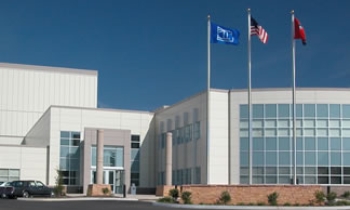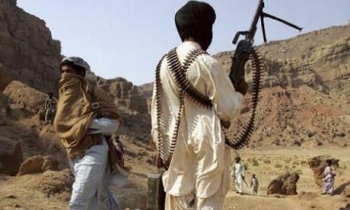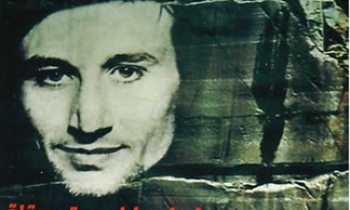Nationalists opposed to Turkey's engagement with Europe have sought out sympathetic public prosecutors across the country to file criminal complaints against journalists, writers, and academics who favour European Union (EU) membership, a new report by the Committee to Protect Journalists (CPJ) has found.

Using loosely worded laws that criminalise the denigration of the Turkish state, its identity and its institutions, nationalists are challenging writings and public comments on issues they dislike, including the Kurds, the mass killings of Armenians under the Ottoman Empire, and the security forces, CPJ's author Robert Mahoney found in its special report, "Nationalism and the Press," released on March 17.
Five journalists – Murat Belge, Haluk Sahin, Erol Katircioglu, and Ismet Berkan of the daily Radikal, and Hasan Cemal of the daily Milliyet – were charged on December 2, 2005 under Article 288 of the penal code with attempting to influence the outcome of judicial proceedings through their writings. All except Berkan, were also charged under Article 301 of the code with insulting "Turkishness," and if convicted could face prison terms from six months to 10 years. The first hearings were held in February.
The accused journalists believe their prosecution, which will resume in April, could be a turning point in Turkey's debate about accelerating its sometimes glacial progress toward a fully functioning Western-style democracy complete with liberties such as freedom of speech and freedom of the press. Opponents of EU membership say the cost of joining the Brussels-based group of 25 states is too high for this predominantly Muslim nation of 73 million.
Article 301 was the statute the nationalists recently used against Orhan Pamuk, the country's most famous novelist. The case against Pamuk – who spoke in a Swiss newspaper interview about the World War I killing of Armenians and Turkey's treatment of its Kurdish minority – was dropped in January amid a wave of protest from activists and lawmakers within the European Union and many of Turkey's NATO partners.
The charges against the five journalists stem from articles they wrote last year challenging the decision of an Istanbul administrative court to ban an academic conference on the mass killing of Armenians under the Ottoman Empire from 1915 to 1917. The Ottoman authorities, allied with imperial Germany, killed and forcibly relocated Armenians whom they accused of sympathising with Russia.

The Armenian massacre is still taboo in public discourse in Turkey. Armenians contend that the killings constitute the first genocide of the 20th century, a characterisation that Turkey rejects. The columns published in Radikal and Milliyet objected to the court's interference in academic freedom by preventing the conference from taking place at two Istanbul universities, in May and then in September. Organisers finally held the conference on September 24, 2005, by moving it suddenly to a third location, Bilgi University. Three of the five defendants teach at Bilgi.
Hundreds of riot police ringed the Bagcilar courthouse for the February 7 proceedings to prevent nationalist protestors from repeating the jostling and egg-throwing that greeted Pamuk's emergence from court last year. European Parliament member Joost Lagendijk, who monitored the hearing for Brussels, told CPJ that convictions of the five journalists would "have consequences for the EU accession process."
The opposition to EU does not come from the moderate, Islamist-based government of Prime Minister Recep Tayyip Erdogan but from conservative, secular nationalist forces, political heirs of Mustafa Kemal Ataturk, founder of modern Turkey. Turks sometimes refer to these forces as the "deep state," or "the state within the state," the legacy of a centrally controlled social and political structure with roots going back to the Ottoman Empire. The elected government runs the ministries, but the deep state works as a permanent political force drawing support from sections of the army, security forces, and parts of the justice and interior ministries, according to political commentators.
The Turkish Union of Lawyers acts as the spearhead of the deep state's onslaught against journalists and writers. Its leader, Kemal Kerincsiz, is associated with the National Movement Party (MHP), a long-established right-wing Turkish nationalist party. "The nationalists are not strong, but they are radically driven people. They have shadow support," said Berkan, one of the five defendants, referring to the deep state. "The nationalists know they have a weak case. What they want is the publicity."
Figures compiled in February by press freedom organisation Bia show that since the new Turkish Penal Code went into effect on June 1, 2005, cases have been brought against 29 journalists under Article 301. Eight have been convicted, and some trials are still continuing. Seventeen journalists who discussed human rights cases, the Armenian conference ban case, and torture cases, have been charged with attempting to influence court decisions under Article 288 of the penal code and other press law provisions, according to Bia.

Nadire Mater of Bia said the onslaught of prosecutions has had an intimidating effect on journalism in the country. "These cases lead to self-censorship. Before you write about issues like the army or the Kurds you will think two or three times," said Mater, who was acquitted in a high-profile 2000 case of insulting the Turkish military in a book of interviews with former conscripts of the civil conflict in southeast Turkey.
The Turkish independent press itself, concentrated in the hands of four major conglomerates, is largely pro-EU and reflects the views of Turkish private enterprise, which sees its future inside the vast European market. "It's ironic," said Turgay Olcayto, secretary-general of the Association of Turkish Journalists. "Twenty years ago we were defending journalists for going against the views of the newspaper proprietors. Now we are defending them for agreeing with the owners."
Last year, the Erdogan government, seeking to balance the opposing demands of nationalists and reformers, amended media provisions in the penal code that stood in the way of EU membership. Fikret Ilkiz, a lawyer and advisor to media companies, said the government could not scrap the laws due to nationalist opposition, so it hastily rewrote them to meet EU deadlines. The rush resulted in flaws and wooly language, he said, which the nationalist lawyers have been able to exploit.
For instance, the government replaced Article 159 of the penal code with Article 301 as part of an overhaul that reduced punishments for certain offenses. But journalists and writers are still silenced under Article 301 as prosecutors interpret a range of political and social criticism as falling under the definition of denigration of the state. "We tried to tell them that the amendments to the press laws that they were bringing in were vague and could be exploited, and they told us not to worry, no cases would be opened. But look what has happened," Ilkiz said.
Most journalists and rights activists are united in wanting Article 301 and similar statutes eliminated, believing that the judiciary is not strong enough to resist nationalists who are exploiting the law to make a political point. Sahin said international coverage of the Bagcilar trial had helped the effort. "Our case is a test case; we are glad this case has been brought," he said. "We may serve a good purpose and open the way for change in the articles of the penal code."
Journalists acknowledge that Turkey has come a long way since the military rule of the 1980s in unshackling the private print media. Yet there is distance in meeting Western European standards of press freedom. "This is a fight for democracy and the rule of law," said defendant Cemal, who was targeted, some journalists believe, because he comes from a prominent nationalist family. His grandfather was a senior military commander in the Ottoman Empire.









